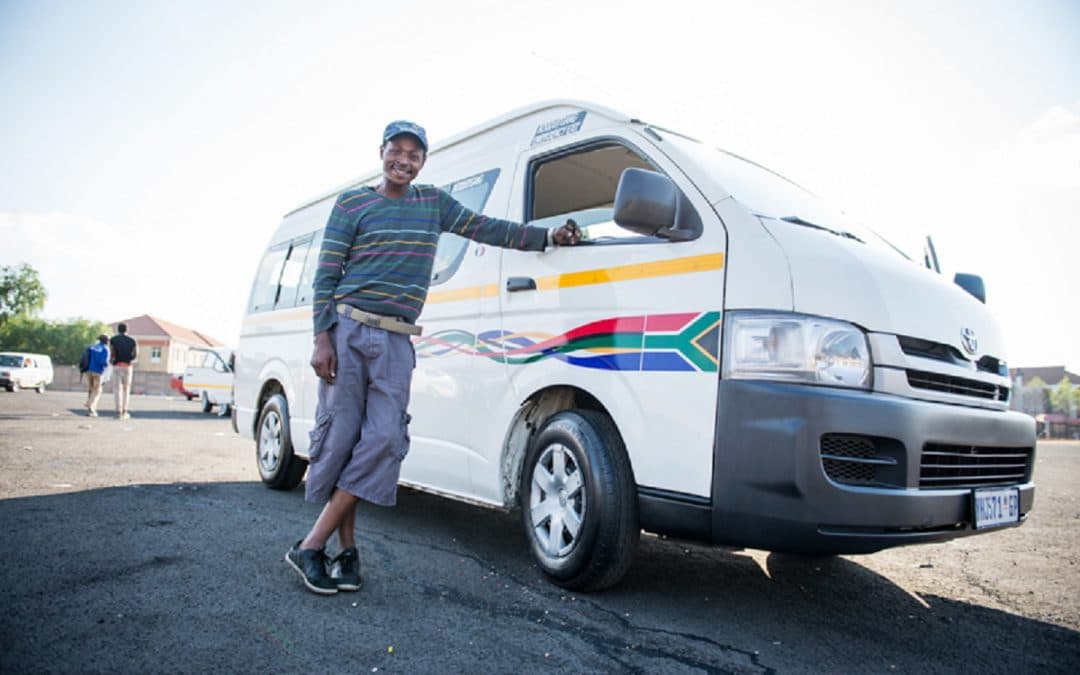Minibus taxis, of which there are around 200 000 in South Africa, account for the bulk of local public transport. About 75% of all daily transport or approximately 15 million commuter trips per day to work, schools and tertiary educational institutions, are carried out by the industry. Since being formally legalised in 1987, the minibus taxi industry has continually innovated and adjusted to challenges in its mission to get those South Africans without access to reliable public transport or their own vehicles, where they need to be in an efficient manner.
Over that time, the sector has amassed an unsurpassed route penetration level, allowing taxis to pick up and drop off commuters within a radius of 100 metres from their homes, shopping malls and place of employment and become an irreplaceable feeder network into other modes of transport including busses and trains.
CTU, a specialist insurance underwriting manager for the taxi and bus industries looks at a few ways through which the industry has innovated or responded with innovative solutions to industry or community challenges.
#1 Paying it forward for the next generation
Despite the well documented challenges being experienced within the taxi commuter industry, the sector still manages to assist communities and commuters who are also experiencing their own difficulties. One such example is the Carolina Taxi Association within Mpumalanga which reduced its fares by 50% for all pupils, in order to assist parents and families within the area as they struggle in the COVID-era to keep head above water.
#2 Taxi industry continues to do its part in curbing the regional spread of COVID-19
Just as with every industry and sector, the Coronavirus (COVID-19) pandemic and lockdown measures hit the minibus taxi industry hard. Regardless of the visible impact on the commuter numbers in taxis particularly during the periods of hard lockdown, the industry continued and still continues to play a pivotal part in fighting the spread of the virus, through amongst others ensuring that commuters sanitise, wear masks and having adhered to commuter capacity limits in the past. Throughout the various stages of lockdown this industry remains key in enabling South Africa’s essential goods and services workforce to travel to and from work, as well as enabling the consumer who needs transport in order to acquire essential goods and services. More recently, the taxi industry, the National Liquor Traders Council, and Distell formed an innovative partnership that has resulted in taxi and liquor operators receiving training in Soweto around Covid-19 compliance in the taxi and tavern sectors. To fight against the scourge of the Covid-19 global pandemic, CTU donated 500 masks at the Randburg Taxi Rank and reduced premiums for their clients last year.
#3 Less money, fewer safety problems around cash
While cash remains king in most taxis, there has been some innovation in the payment space, although a move to cashless operations would be very beneficial for the non-mathematical passenger who is obligated to play accountant in the passenger seat! Before Apple Pay was a thing and Samsung Pay made it to local shores, TaxiChoice already piloting an innovative cashless payment system for minibus taxi vehicles within Pietermaritzburg and KwaZulu-Natal.
#4 Fuelling big petrol and diesel cost savings for the industry
After innovating the category of minibus taxi insurance way back in 1991, but being one of the first companies to help insure taxis, CTU continues to create innovative offerings for the industry. This includes CTU-FUEL, which is a fuel relief programme. Amongst other benefits, CTU-FUEL provides taxi operators and owners with benefits such as the ability to save up to 70c per litre on Diesel and 13c per litre on Petrol allowing for huge savings on operating expenses, as well as obtaining access to electronic fuel management system that enables programme members to track their deposits, transactions, vehicle consumption and savings to run their business more efficiently.
#5 Rewarding driver excellence
To reward and recognise hard-working, dedicated and some incredibly skilled taxi drivers in the industry, CTU, teamed up with industry players to host the Best Driver of the Year competition since 2018. The aim of the competition is to reward good drivers who work exceptionally hard at delivering great service, keeping the lives entrusted to their care safe and, secondly, serving as an eye-opening experience to showcase to commuters, passengers and fellow road users that taxi drivers play a pivotal role in society and their personal journeys.


